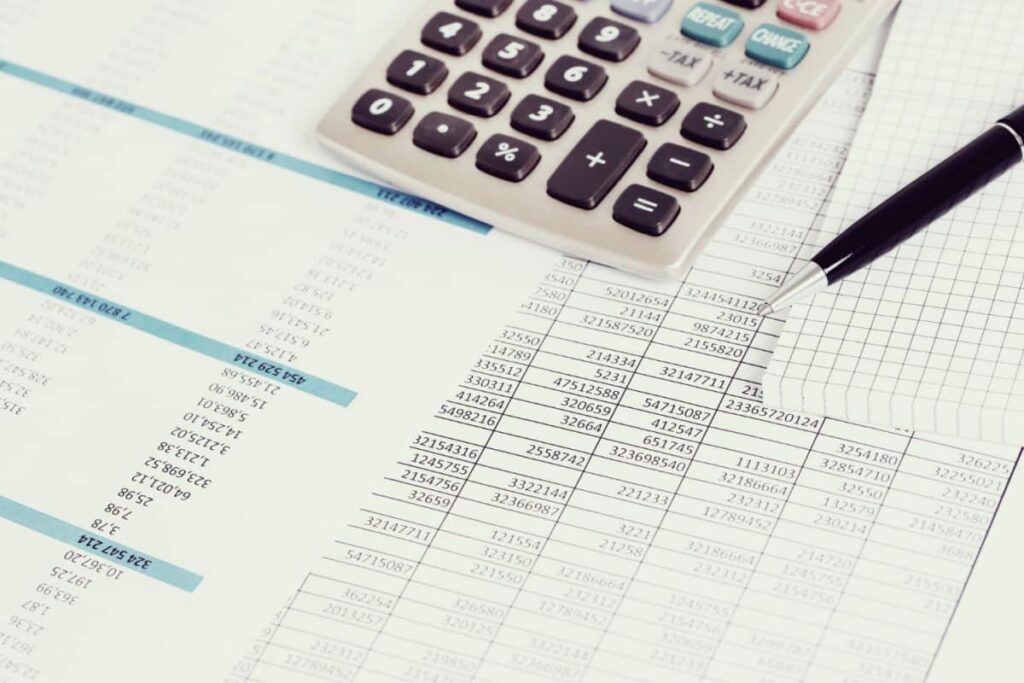The Australian tax structure is particularly complicated, making taxation difficult to understand. Understanding essential tax suggestions will simplify this procedure and maximise your returns while complying with ATO standards. Here are seven handy tax tips every Australian should know.
Know Your Residency Status
Understanding your resident status is crucial to managing your Australian taxes. It's more than a formality—it might affect your taxes, benefits, and duties. Understanding the distinction between tax residency and other legal residence is crucial.
Australian tax residence is complex. More than location or length of stay in the nation. The ATO considers numerous elements to establish tax residence. Include your purpose and duration of stay in Australia, occupation, asset location, and family relationships. ATO considers your position holistically, not just one issue.
Australian residents pay tax on their international income. Income from abroad investments and employment can lead to double taxation; however, international tax credits or treaties might minimise this. Residents get the tax-free threshold and other tax offsets and advantages.
However, non-residents are solely taxed on Australian income. Income from Australian jobs, companies, or assets like property. Non-residents pay greater taxes on their first dollar of Australian income since they cannot use the tax-free threshold.
The distinction between resident and non-resident might need to be clarified for expats, foreign workers, international students, and frequent travellers. For tax reasons, an Australian who has migrated overseas but has strong ties to Australia may still be deemed a resident. You may be a non-resident if you've come to Australia but live elsewhere and plan to return.
Your tax residence status may vary annually depending on circumstances. This mobility implies it must be evaluated constantly and not 'set and forget' in your taxes.
Understanding your tax residence status goes beyond checking a box. It's vital to your tax profile. Getting it incorrectly might result in unexpected tax payments or lost advantages. This part of Australian taxation can be confusing, therefore expert counsel is frequently wise. Knowing you're fulfilling your tax requirements and optimising your finances wherever you live gives you peace of mind.
Keep Accurate Records
Effective tax management in Australia requires precise records. Being organised isn't enough—you need all the information to prepare your tax return properly and on time. The Australian Taxation Office (ATO) demands five years of data, therefore a reliable system is essential.
Keeping every receipt and financial paperwork may seem onerous, but several digital tools and applications may help. Imagine having a phone app to scan receipts and track costs rapidly. This saves time and eliminates paper clutter. Finding a receipt or cost record takes seconds rather than hours with everything digital.
Remember that these recordings aren't for you. Having complete and structured tax records is your first protection against the ATO. It’s your responsibility to prove your claims; without proper documentation, you might be unable to claim certain tax deductions.
So, what exactly should you be keeping? Everything related to income and spending. Examples include employer payment summaries, bank statements indicating interest earned or costs connected to income-generating activities, work-related invoices and receipts, rental property records, and private health insurance coverage data.
Starting and maintaining rigorous record-keeping may seem difficult, but it becomes second nature once you become used to it. Compliance with Australian tax regulations and a strong position to claim all deductions are key benefits. Who wouldn't desire a smaller tax bill or a higher refund? Good record-keeping is vital in tax law.
Utilise Superannuation Contributions
Superannuation payments are smart and can help you now and later. Superannuation is a tax-efficient strategy to save and invest for retirement in Australia. You may cut your taxable income and increase your retirement savings by voluntarily contributing to your super.
Its tax-friendliness makes superannuation appealing. Your 'concessional contributions'—your employer's and any pre-tax contributions—are taxed at 15%, which is likely lower than your income tax rate. This discrepancy offers tax savings. In a 32.5% income tax level, making extra super contributions can replace higher tax rates with the 15% super contribution tax.
It goes beyond lowering your tax bill. Long-term strategy: superannuation. The Australian government offers incentives to increase superannuation contributions. Low- to middle-income people can benefit from the government co-contribution system. If you make after-tax super contributions and fulfil certain requirements, the government will match them. Take advantage of this free money to improve your retirement savings.
Your annual super contribution is capped to avoid excessive taxes. Knowing these restrictions is important since exceeding them might result in extra taxes, negating superannuation's tax effectiveness.
High-income individuals should also understand Division 293 tax. This tax adds 15% to concessional super contributions if your income and contributions reach a threshold. It ensures that super tax exemptions do not favour high-earners.
Also, consider salary-sacrificing into your super. You and your employer agree to forgo a percentage of your pay and donate it to your super. Contributing this amount of your wage before tax can reduce your taxable income.
Superannuation contributions are a significant financial planning tool. Saving for retirement requires tax-efficient methods. This financial approach takes careful preparation, like any other. Super contribution limitations and guidelines are complicated, and what works for you depends on your finances. It's best to consult a financial advisor or tax specialist to navigate these waters. Planning today can ensure a safe and wealthy future.
Understand Your Deductions
Understanding deductions is essential to negotiating Australian taxes. It's like a tax savings key. Deductions minimise income taxes by claiming costs directly related to producing revenue. Identifying and claiming these deductions might be more complicated.
The Australian Taxation Office (ATO) provides clear but occasionally complicated deduction regulations. It's not enough to claim everything—these costs must be tied to your income. For instance, you can claim the expense of buying, washing, and maintaining a work outfit. You can claim part of those expenditures if you drive for work (not commuting).
It goes beyond work-related costs. Many taxpayers need to pay more attention to other deductions. Your gifts to recognised charities can frequently be claimed. Deductible investment expenditures include stock portfolio management and investment property expenses. It's important to distinguish between personal and income-producing use.
The deduction landscape also changes. The ATO constantly modifies its standards, adding new deductions or changing current deductions. Since more individuals work from home, the ATO has standards for estimating home office expenditures.
The idea that work-related expenses are deductible is also widespread. This happens occasionally. The daily travel to and from work is only sometimes claimable. Buying lunch at work may feel like a business cost, but it's not deductible.
Understand deductions and prove your claims. Simply said, you can't claim it without proof. Keeping receipts, logs, and records is essential. For instance, a diary of work-related automobile usage might help prove automotive expenditures.
Knowing your deductions is strategic. It needs knowledge, rigorous record-keeping, and a sharp eye for personal and income-generating spending. The effort may save you a lot on your tax payment. The goal is to avoid overpaying taxes, not to escape them.
Leverage Tax Offsets and Rebates

Using tax offsets and rebates can drastically reduce your Australian tax burden. Many people must be aware of the variety of offsets and refunds available or need to check their eligibility. Understanding and using them can drastically reduce your tax.
Tax credits, or offsets, directly lower your tax bill. Your ultimate tax bill may change significantly. Some examples include the low-income tax offset, which helps low-income people pay less tax. The seniors and pensioners tax offset is offered to older Australians under specific situations.
But income isn't everything. Offsets for certain scenarios may be unknown to taxpayers. You may get a tax break if you cover your spouse's medical bills. You may qualify for the dependent (invalid and carer) tax offset if you support a dependent. Due to the financial strain these situations might cause, these offsets are meant to help.
Rebates varied somewhat. Rebates for certain costs or conditions are deducted from gross tax before offsets. Government programmes like the private health insurance rebate encourage Australians to get private health insurance. Private health insurance premiums may be refunded depending on age and income.
Remember that each offset and refund has eligibility requirements. It's not uniform. What you may claim depends on your income, family, and costs.
Since the Australian government examines and modifies tax offsets and refunds, changes in tax law must be monitored. Available one year may be amended or discontinued the next. The healthcare system or government policy changes might affect the private health insurance rebate.
Using tax offsets and refunds requires research and competent assistance. It's more than just filing a tax return—it's about strategically lowering your taxes. This proactive strategy can improve your finances. Knowing and claiming all your offsets and rebates may save much money, making tax time easier and more gratifying.
Consider Professional Advice
Tax regulations in Australia are complicated and ever-changing; therefore, expert assistance is necessary for tax management. Tax Warehouse helps navigate the complex tax landscape.
Tax Warehouse is dependable for various reasons. We are tax agents with extensive knowledge to maximise deductions. Our staff understands Australian tax legislation. It keeps up with changes to comply with the ATO and maximise deductions and rebates.
Our affordable guidance is a major benefit. Professional tax services might be costly, but we provide a superior alternative. This makes expert tax aid more accessible, ensuring everyone maximises their tax returns.
We also simplify tax help with our user-friendly website. The simplicity of applying online for tax returns helps switch the game. You can skip long in-person appointments. Apply online, and a tax agent can help you right away. This efficiency is great for busy people.
Professional counsel is crucial. An expert advisor may assist anybody with several income streams, a small business, or complex financial portfolios. We can find overlooked deductions, recommend tax-efficient investments, and prepare your tax return.
Our knowledge, price, and efficiency make us a top choice. Our dedication to helping you maximise your taxes and the simplicity of our online services make them a great alternative for anybody wishing to navigate the Australian tax system effectively.
Stay Informed and Plan Ahead
Staying informed and planning are key strategies for handling your taxes in Australia. Like a long road trip, understanding the map and planning your route will make it easier. New tax laws, rules, and standards are constantly introduced. Keeping up with these developments is essential to staying compliant and taking advantage of new tax reduction options.
Maintaining tax knowledge starts with verifying credible sources. Starting with the ATO website is ideal. It covers everything from tax rate and deduction adjustments to new tax laws and regulations. Signing up for ATO alerts or following them on social media is a simple yet efficient method to stay current on tax news.
Not merely reacting to changes. Proactive planning matters too. This entails reviewing your finances before the end of the year and making tax-friendly decisions. To lower your taxable income, increase your superannuation payments if you're nearing a higher tax rate.
Understanding how your funds interact is also important for tax preparation. Investment decisions should be considered in light of tax effects. This might involve timing asset sales to manage capital gains or structuring investments tax-efficiently.
Life changes might also affect taxes. Altering employment, relocating abroad, establishing a company, or altering your family structure might influence your taxes. You may adapt your financial strategy by staying ahead of these developments and recognising their tax ramifications.
Knowing tax deadlines is another part of preparing and being informed. Understanding tax returns and payment dates is crucial to avoiding fines and interest.
Knowing and planning taxes requires a sharp learner and a smart planner. Staying current on tax news and how it affects you is key. Then, use that knowledge to organise your finances proactively. This strategy might save a lot and ensure your financial future by avoiding tax shocks.
Conclusion
In conclusion, understanding the Australian tax system is difficult yet rewarding. These seven tax ideas can help you comply with the ATO and maximise your finances. From diligent record-keeping to comprehending deductions, each suggestion helps you prepare for tax time.
Knowing your resident status, using tax offsets and rebates, and saving via superannuation may lower your tax burden. Professional guidance, like ours, may assist you in understanding difficult tax issues. Finally, being informed and preparing is crucial to reacting to the shifting tax situation and making financial health-enhancing decisions.
Remember that tax management is about financial prudence as much as compliance. Using these recommendations, you're taking proactive measures towards financial security and success. These ideas can improve your tax experience whether you're an individual taxpayer, company owner, or someone with many income streams and interests. So adopt these methods, keep educated, and watch your Australian tax strategy change.

Content Summary
- The Australian tax structure is complex and requires understanding to manage taxes effectively. Understanding your residency status is crucial for managing Australian taxes, as it affects your taxes, benefits, and duties.
- The distinction between tax residency and other legal residence is complex, involving factors such as purpose and duration of stay in Australia, occupation, asset location, and family relationships.
- Australian residents pay tax on their international income, while non-residents are solely taxed on Australian income.
- The distinction between resident and non-resident may need to be clarified for expats, foreign workers, international students, and frequent travellers.
- For tax reasons, an Australian who has migrated overseas but has strong ties to Australia may still be deemed a resident.
- Non-residents may be a non-residents if they have come to Australia but live elsewhere and plan to return.
- Keeping accurate records is essential for effective tax management in Australia.
- The Australian Taxation Office (ATO) requires five years of data, so a reliable system is essential.
- Digital tools and applications can help keep track of receipts and financial paperwork, but it is the taxpayer's responsibility to prove their claims.
- Everything related to income and spending should be kept, including employer payment summaries, bank statements, work-related invoices and receipts, rental property records, and private health insurance coverage data.
- Good record-keeping is vital in tax law and can lead to a smaller tax bill or higher refund.
- Utilising superannuation contributions is a smart financial planning tool that can help save and invest for retirement in Australia.
- Superannuation payments are tax-efficient, as concessional contributions, including employer's and pre-tax contributions, are taxed at 15%, likely lower than the income tax rate.
- In a 32.5% income tax level, making extra super contributions can replace higher tax rates with the 15% super contribution tax.
- The Australian government offers incentives to increase superannuation contributions, with low- to middle-income people benefiting from the government co-contribution system.
- High-income individuals should also understand Division 293 tax, which adds 15% to concessional super contributions if income and contributions reach a threshold.
- Salary-sacrificing into your super can reduce taxable income by contributing a percentage of your wage before tax.
- Superannuation contributions are a significant financial planning tool, and careful preparation is necessary to ensure a safe and wealthy future.
- Understanding deductions is crucial for negotiating Australian taxes and can be a key to tax savings.
- Deductions minimise income taxes by claiming costs directly related to producing revenue.
- The Australian Taxation Office (ATO) provides clear but sometimes complicated deduction regulations, but more is needed to claim everything; these costs must be tied to your income.
- It goes beyond work-related costs and gifts to recognised charities and investment expenditures like stock portfolio management and investment property expenses.
- The deduction landscape also changes, with the ATO constantly modifying its standards.
- Work-related expenses are only sometimes claimable, and daily travel to and from work is only sometimes claimable.
- To prove your deductions, keep receipts, logs, and records, such as a diary of work-related automobile usage.
- Knowing your deductions is strategic, requiring knowledge, rigorous record-keeping, and a sharp eye for personal and income-generating spending.
- The goal is to avoid overpaying taxes, not to escape them.
- Using tax offsets and rebates can drastically reduce your Australian tax burden. Offsets directly lower your tax bill, while rebates vary somewhat.
- For example, the low-income tax offset helps low-income people pay less, while the seniors and pensioners tax offset is offered to older Australians under specific situations.
- Eligibility requirements for each offset and refund are not uniform, and what you may claim depends on your income, family, and costs.
- As the Australian government examines and modifies tax offsets and refunds, changes in tax law must be monitored.
- Understanding and claiming all your offsets and rebates can save money and make tax time easier and more gratifying.
- Tax Warehouse is a reliable and affordable tax agency that helps navigate the complex Australian tax landscape.
- With extensive knowledge of Australian tax legislation, they ensure everyone maximises their tax returns and takes advantage of new tax reduction options.
- Their user-friendly website simplifies tax help, making it easier for busy individuals to apply for tax returns.
- Professional counsel is crucial for anyone with multiple income streams, a small business, or complex financial portfolios.
- They can find overlooked deductions, recommend tax-efficient investments, and prepare your tax return.
- Their dedication to helping you maximise your taxes and the simplicity of their online services make them a top choice for anyone wishing to navigate the Australian tax system effectively.
- Staying informed and planning are key strategies for handling your taxes in Australia.
- New tax laws, rules, and standards are constantly introduced, making it essential to stay compliant and take advantage of new tax reduction options.
- Maintaining tax knowledge starts with verifying credible sources, such as the ATO website, which covers everything from tax rate and deduction adjustments to new tax laws and regulations.
- Signing up for ATO alerts or following them on social media is also an efficient method to stay current on tax news.
- Proactive planning involves reviewing your finances before the end of the year and making tax-friendly decisions.
- This may involve timing asset sales to manage capital gains or structuring investments tax-efficiently.
- Life changes, such as changing employment, relocating abroad, establishing a company, or altering family structure, can also affect your taxes.
- Knowing tax deadlines is another part of preparing and being informed, as understanding tax returns and payment dates is crucial to avoiding fines and interest.
- In conclusion, understanding the Australian tax system is difficult but rewarding.
- These seven tax ideas can help you comply with the ATO and maximise your finances.
- By adopting these methods, staying informed, and watching your Australian tax strategy change, you can ensure your financial future and avoid tax shocks.
Frequently Asked Questions
A voluntary superannuation contribution can minimise your taxable income and tax burden. Special tax rates apply to these contributions, generally lower than your income tax. However, there are annual contribution restrictions, so be alert.
Your tax residence status influences your Australian tax. As a tax resident, you pay taxes on your worldwide income but get additional tax breaks. Only Australian-sourced income is taxed at separate rates for non-residents. To satisfy your tax responsibilities, you must verify your resident status precisely.
Absolutely. Australia offers tax credits and refunds for low-income people, pensioners, and families. These can considerably cut your tax bill. You should verify your eligibility for them each year because they might change and affect your tax status.
If your tax position is complicated, expert tax guidance might be helpful. Tax Warehouse professionals can help you understand the tax system, claim all deductions, and prepare your taxes. Their experience may help you maximise returns and comply with Australian tax rules.















